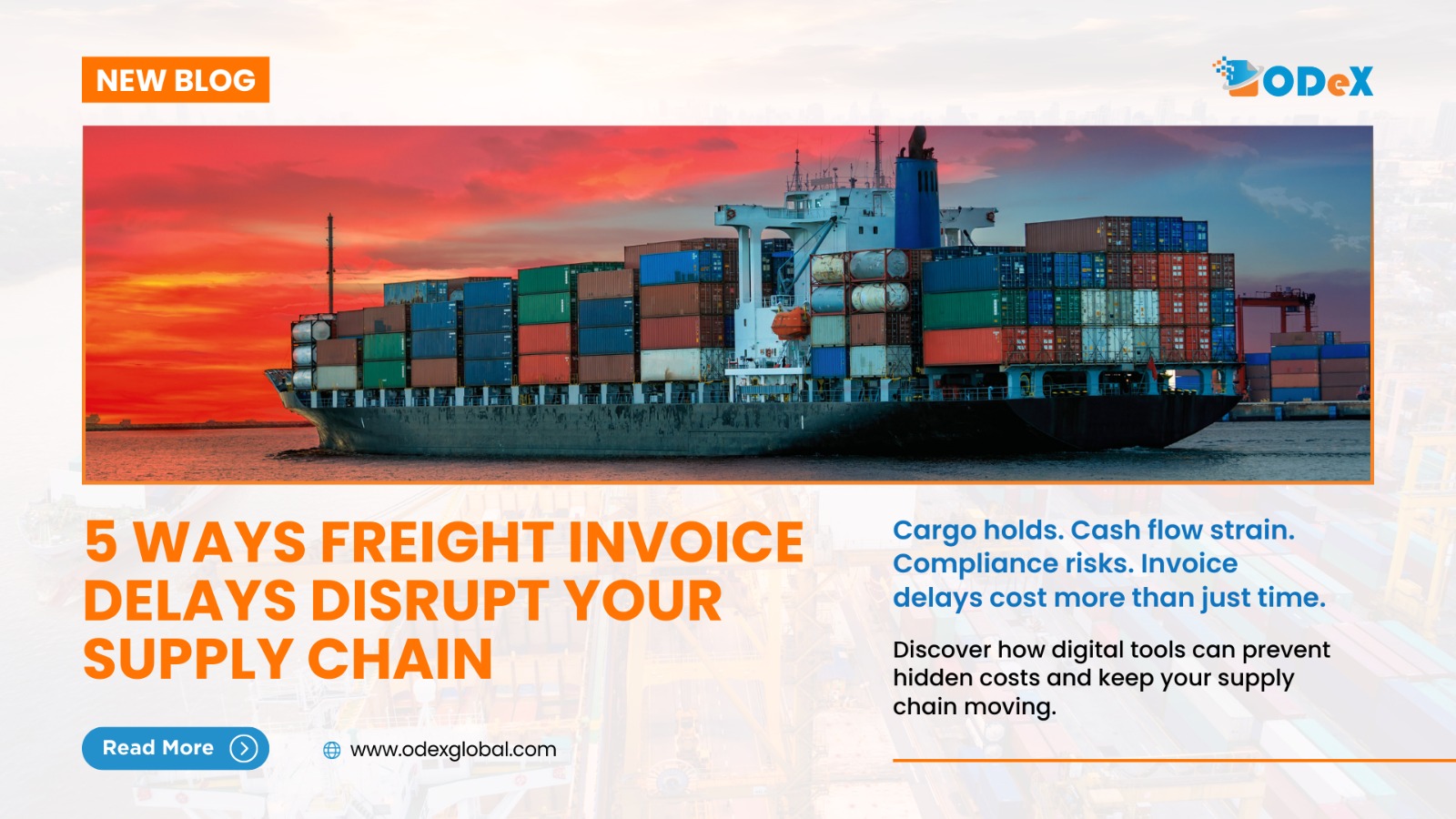5 ways freight invoice delays disrupt your supply chain
The business of shipping and freight is a dynamic one where timing is everything. Even minor delays in freight invoice processing can ripple through a supply chain.
From postponed cargo releases to strained vendor relationships, slow invoicing and disjointed payment flows are costing businesses time, money, and trust.
For shippers and forwarders, the challenge is no longer just moving goods efficiently, it is about ensuring documentation and payments move just as swiftly.
Let us explore five ways invoice delays can harm your operations, and how digital tools like ODeX can help you prevent them before they start.
1. Cargo holds and detention fees
When invoices are not processed on time, delivery orders get delayed. The result? Containers stuck at terminals or ICDs, accumulating demurrage and detention charges. For every extra day, the cost escalates, and it is often unclear who should bear it.
With the right digital solutions, these delays are minimised through faster invoice visibility, quicker approval cycles, and instant status updates, reducing the risk of cargo hold-ups.
2. Frustrated vendors and strained relationships
Your vendors, freight forwarders, carriers, transporters, rely on prompt payments to run their own operations. Delayed invoices mean delayed payments, which can damage your credibility and impact service quality. In some cases, vendors may begin to prioritise other clients who settle faster.
By automating invoice reconciliation and sharing access to a single source of truth, digital platforms enable real-time collaboration and transparency across all parties.
3. Errors due to manual processes
Manually keying in data across documents often results in inconsistencies, typos in invoice numbers, wrong amounts, or mismatched references. Each error slows down reconciliation and may lead to disputes, further delaying processing and payment.
Automation with built-in validation checks and standardised formats significantly reduces human error, helping shippers and forwarders avoid tedious back-and-forth and speed up turnaround.
4. Missed audit trails and compliance risk
With stricter audits and documentation requirements, especially under customs and regulatory authorities, a lost invoice or missing approval trail can turn into a serious issue. Companies that lack visibility into who approved what, when, and how, face compliance challenges and possible penalties.
Digital systems maintain detailed audit logs, timestamps, and user-level access histories, ensuring documentation is always traceable and defensible.
5. Cash flow disruptions
Delayed invoice processing ties up cash on both ends. Shippers cannot project their outgoing costs accurately, and forwarders cannot chase receivables efficiently. This can cause short-term working capital strain and limit your ability to respond to new business opportunities.
By compressing the time from invoice generation to payment, businesses can maintain healthier cash flow and forecasting accuracy.
Conclusion
Freight invoices are not just paperwork, they are the financial backbone of the shipping ecosystem. Any inefficiency here affects the entire supply chain. Shippers and forwarders who digitise this layer stand to gain not only in cost savings but also in resilience, responsiveness, and reputational trust.
With platforms like ODeX bringing together invoice visibility, verification, and payment into a single streamlined process, documentation delays become a solvable problem rather than an inevitable one.


















